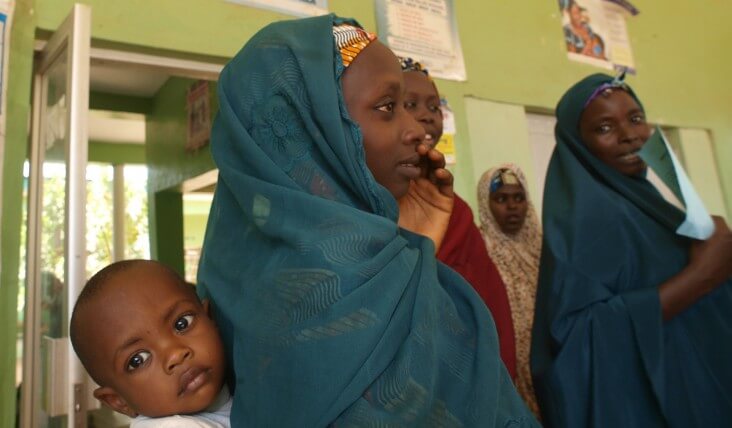About 62 per cent of children born in Nigerian are usually born outside health facilities, the United Nations Children Emergency Fund (UNICEF) said on Wednesday.
According to UNICEF, while only 40 per cent of women access health facilities to give births, registration of births has been known to be significant for national development.
Advertisement
The agency which stated these while painting a sad picture of the poor registration of births in Nigeria, emphasising that in 2018, the performance of birth registration stood at only 32 per cent.
A Child Protection Specialist in UNICEF, Sharon Oladiji, raised the alarm in Kano in her papers entitled: “Current situation of birth registration in Nigeria” and “Benefits and challenges of birth registration in Nigeria”, during the opening ceremony of a two-day media dialogue for journalists on birth registration.
She quoted the National Demographic Health Survey (NDHS – 2013-2018) which traced the low level of birth registration to ignorance of rural community dwellers.
The event was organised by UNICEF and supported by Child Rights Information Bureau (CRIB) of the Federal Ministry of Information, Culture and Tourism.
Advertisement
While declaring the event open, the Minister of Information, Culture and Tourism, Alhaji Lai Mohammed, represented by the Head of Advocacy in CRIB, Olumide Osanyipeju, said there was need for widespread media campaign to enlighten and create awareness in homes, communities and at all levels of government on birth registration.
He added that the low awareness of birth registration in Nigeria had resulted to lack of planning.
Mohammed said, “The low level or apparently lack of awareness on the importance of birth registration has resulted in lack of planning for children and improper capturing of this important segment of our society in developmental and social processes that affect them.
“Workable solutions to this general weak knowledge can begin right from the homes and communities and through a wide spread media campaign aimed at creating awareness at all levels of governance and civil society.”
The media campaign, he said, would drive demand for birth registration services and promote increased knowledge on the importance of birth registration.
Advertisement
The minister stated that 18 states and the Federal Capital Territory, Abuja with under-five population projections totaling over 20 million are being considered for integrated birth registration uptake approach.
There are Adamawa, Kebbi, Niger, Borno, Jigawa, Bauchi, Kaduna, Katsina, Kano, Sokoto, Ekiti, Enugu, Ondo, Rivers, Oyo, Ogun, Benue and Lagos state and FCT.
Oladiji said the refusal of women to access health facilities but instead opt for traditional birth attendants was a major problem in birth registration.
According to her, advocacy at all state levels, if strengthened, would support birth registration.
She said, “In Nigeria, 62 per cent of children are born outside health facilities, while only 40 per cent of women access health facilities to give births. In 2016, registered births under the age of one is 2,519,071, which translated to 51 per cent of the estimated births in the country.
“But in 2017, it reduced to 7,066 birth registration out of the 4,758,812 expected birth under one years. It is therefore worrisome in 2018 where the performance of birth registration is only 32 per cent. This also shows that all the states have low registration and this can be traceable to some limitations which must be urgently addressed.
Advertisement
“It is always difficult for government to know the number of schools to be built, projects to undertake and health workers to employ when they do not know the numbers of births in Nigeria.”
She stressed the need for local support to mount health centres, increase health registrars and constantly sensitise the public on the importance of birth registration in the country.
Oladiji therefore called on the civil society organisations and the media to rise up to the challenge and educate mothers on the importance of birth registration.



